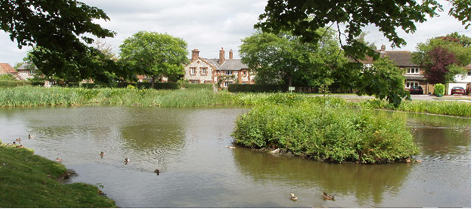USUALLY life in a council’s finance department is like rowing a boat on a millpond. Calm, well-ordered, organised. At the moment it’s a white-knuckle ride.
Like businesses and households everywhere the councils are counting the cost so far of the coronavirus pandemic. And the figures at the end of the accounting column are not pretty.
As the new Buckinghamshire unitary council prepared for its launch on 1st April (what an April Fool that turned out to be!) there was smug satisfaction that finance would be the least of its troubles. After all it was set to save a fortune from closing down the four district councils and county council that existed previously by merging jobs and shedding staff.
Then, days before its launch, came the lockdown. For its first three months the council not only had to pay out more than anticipated for helping the vulnerable and providing extra services, it had no income from usual sources like leisure centres and car parks.
The Government pitched in with emergency funds of course, but you’ll be lucky to find a councillor anywhere who thinks it’s anything like enough. As a result Bucks reckons it has overspent by £6m to the end of June. Next door, at Windsor and Maidenhead, the council has already spent more than half of its £8m reserves.
And of course, no one has a clue where this is going…except probably downwards. There’s going to be a lot of council/Government arm-twisting over the next few weeks.
OVER THE TOP
UNFORTUNATELY for Buckinghamshire the virus meant the council had to postpone the local elections until next May, which left it weighed down with far more councillors than was intended.
The elections would have sent 147 councillors to sit on the new council (a figure many consider over the top compared to somewhere like Birmingham, for instance, where 99 councillors oversee an population more than double Buckinghamshire’s).
Consequently all the former district and county councillors are represented on the new authority – 196 of them in all, making us the most “over-councillored” area in the country and all of them – presumably – claiming their allowances and expenses.
GOLDEN GOODBYES
IT’S NOT only unexpected councillors who are putting a strain on council finances. Last month – three months late – the unitary council produced the final annual accounts for the four district councils, now deceased.
They showed that top council officials who didn’t make the transition walked off with some tidy packages. Karen Satterford, the former chief executive of Wycombe District Council, who left a year ago, departed with a package that included £132,780 as “compensation for loss of office”. Bob Smith, joint chief exec of Chiltern and South Bucks district councils who hadn’t been in the job long, left with a pay-off that included over £69K for similar “loss of office” compensation.
In total the transition costs from the district councils to the unitary council amounted to around three and a half million.
As Private Eye is fond of saying on its Rotten Boroughs page: It’s only (public) money.
AN OMINOUS RISE
MEANWHILE, in the real world, official figures this week showed that the number of people claiming jobless benefits in Buckinghamshire nearly tripled between early March and early July – a jump from 5,570 to 15,235.
Locally, the Office for National Statistics said that 2,670 people in the Wycombe constituency, which includes Tylers Green and Hazlemere, were looking for work on 9 July – that’s 6.4 per cent, the same as the national average.
So far the neighbouring constituencies are bearing up better. In Chesham and Amersham, which includes Penn, there were 1,320 jobless (4.2 per cent) while in Beaconsfield it’s 2,600 people (4.3 per cent).
However, the figures don’t take into account the fallout from the 12,000 job cuts British Airways is planning. The airline is one of the biggest employers in the area.
